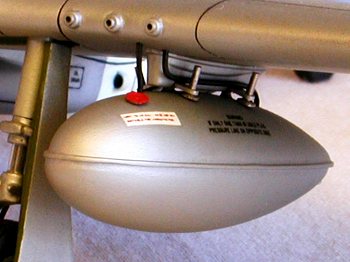I put a few handfuls of 2B limestone gravel in the tank along with about a quart of acetone. Get you and a buddy to slosh the snot out of it. The acetone dissolves the gunk and the stone gets the stubborn. An injector cleaner will give your whole fuel system a good clean. You can buy the injector cleaner at a reputable auto store.
I would recommend getting an injector cleaner that you can use over several fuel tanks, and not just the one. I makes a difference if they have to remove the tank to clean it or they can access it in the vehicle. You could probably call any auto repair shop and find out.
Plain white vinegar (which is the cheapest type of vinegar) will work incredibly well to dissolve, clean -out and remove rust from inside a gas tank. First you have to take out the gas tank and. Put on safety gear, including goggles, gloves, and a respirator mask. Place the fuel tank on a soli level surface, such as driveway, shop floor, or garage floor.
Use a portable vacuum nozzle and pressurized air to remove road dirt from the. Once the tank has been remove drain all fuel from the tank. Fuel Tank Cleaning Procedures 1. Clean accumulated road debris or rust from the top of the fuel tank ,.
Remove the module or hanger assembly. Clean and flush the tank with water before installing the. Before removing the tank , be sure it is empty of fuel.
Not only is this a safety precaution, but it also takes some weight off, making the whole process easier. Some gas tanks have a drain cock, allowing the fuel to be drained neatly. Insert hose into fuel tank and begin pouring a stream of clean , hot water.
While water is filling, spray mild detergent in the tank. If opening allows, use a brush to loosen debris from the sides of the tank. Swish the water around to ensure all debris has been captured.
After removing the tank , you’ll want to take a pressure washer and spray down the inside of the tank. This will help dislodge dirt, debris, and small flakes of rust. It will also help rinse out gasoline sediment. Use a pressure washer or a regular garden hose and sprayer to clean the inside of the tank.
The second step is to clean the tank. When your tank is empty, fill it up with water, along with some trisodium phosphate cleaner. For every five gallons of water, use one cup of cleaner. Place an air hose into the tank and turn on your air pump.
Let the solution work itself in the tank for hours. TO MAINTAIN A CLEAN FUEL TANK AND STABILIZE FUEL FOR LONG-TERM STORAGE: Add gallon of Clear-Diesel to each 0gallons of fuel tank capacity. Fill tank with diesel fuel. Gasoline and Ewill NOT cut varnish.
Then, after the varnish is out, if there is rust, muriatic acid is the most thorough. Do not use any galvanized fittings on your fuel pump rigging. Diesel fuel will melt the finish and turn it into goo. Water has always been a problem in diesel fuel. But today’s cleaner-burning fuels have dramatically reduced sulfur content and are more prone to water separation, contamination and are inherently unstable.
Get familiar with the inside of your tank you are going to need to fit. Mix Tablespoon of Washing Soda with every gallon of water to create an Electrolyte solution. Cut your sacrificial anodes to lengths that will fit in the tank.
Wire all of the electrodes together so they. Open both the valve on the separator and the valve under the pump. Use the air purge valve on top of the separator to make sure all of the fluid can be drained from the system. Opening the valves and the air purge valve will allow fuel to flow down and out of both hoses into the tank.
You’ll need a handful of ball bearings and half a gallon of diesel. Make sure you use diesel and not regular gas for this task. Shake the tank vigorously with all the hoses blocked off and the fuel cap on. If not, you can apply these basic techniques: Unhook any gas lines, or vacuum lines, depending on the brand of motorcycle.
Some motorcycles are equipped with fuel valves on the gas tank. Then dried the inside of the tank with hot air. As soon as it drie the POR-was applied. Undo the breather lines on top, remove the tank and clean away all that vintage dust.
The muriatic acid did a great job of removing the rust, as,. Strap you gas tank to the drum, and. Let it tumble for about an hour. Clean it out with water, then flush with aceton.
Use your favorite tank sealer afterwards. You might think that oil tanks need cleaning out because of some sort of tar buildup. Actually, it is not the thick pollutants you need to look out for, but the weak ones. Condensation forms on the inside of tanks , and the resulting water gets trapped.
Water builds up at the bottom of the tank — remember: Oil floats on water.

No comments:
Post a Comment
Note: only a member of this blog may post a comment.